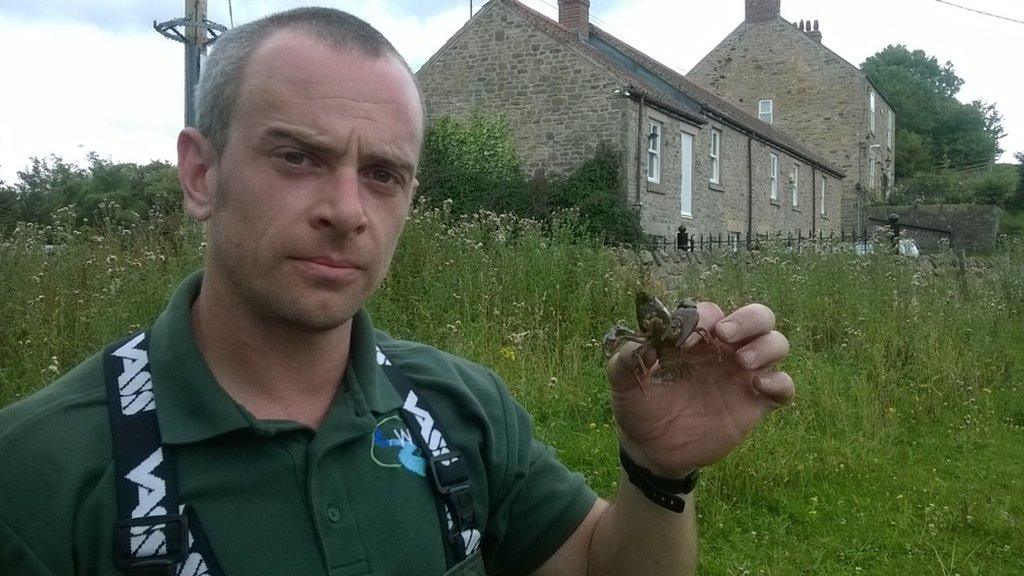Crayfish claw back after River Wye conservation project
- Published
Cardiff University researcher Rhidian Thomas explains why the invasive of North American crayfish is such a threat
Efforts to save the native white-clawed crayfish from extinction in Wales are showing "encouraging" results.
Natural Resources Wales (NRW) said an innovative project has seen approximately 4,000 of the threatened crustaceans reared and released here since 2009.
The focus is on the River Wye and its tributaries, the last remaining native crayfish stronghold in Wales.
Some fear the species could die out completely by 2030.
Crayfish are considered a key indicator of the health of our rivers.
But numbers have been in sharp decline since the introduction of North American signal crayfish to Britain in the 1980s.
Initially, these larger crayfish were farmed for their meat.
But the non-native species spread widely, out-competing native populations for food and infecting them with a deadly plague.
Oliver Brown, NRW's fish culture officer, said parts of the country had lost between 50 to 98% of their population of white-clawed crayfish.
As a keystone species, the native crayfish's decline impacts on the overall diversity of water courses with knock-on effects for a large number of other organisms and habitats as a whole.
The re-introduction project at Cynrig Hatchery, near Brecon, was designed as a "stop-gap" measure to avoid a total wipe-out in Wales.
With help from local charity the Wye and Usk Foundation, the reared crayfish are released into specially selected "ark" sites, where they are protected by natural barriers from possible invasion by signal crayfish.
Recent site visits have shown the juveniles surviving for at least two years post release.
"If we can create enough of these ark sites it should give us that little bit of extra time to find a solution to the issues," Mr Brown told BBC Wales.
He added that there was growing interest across the UK in the work being carried out in Wales.
"It's an iconic species, indicative of a really good river habitat. If we lose it then it's the start of a slippery slope.
"But in reality we are going to have to come up with something pretty spectacular (to reverse the decline)."
Meanwhile, researchers at Cardiff University are hoping they can do just that.
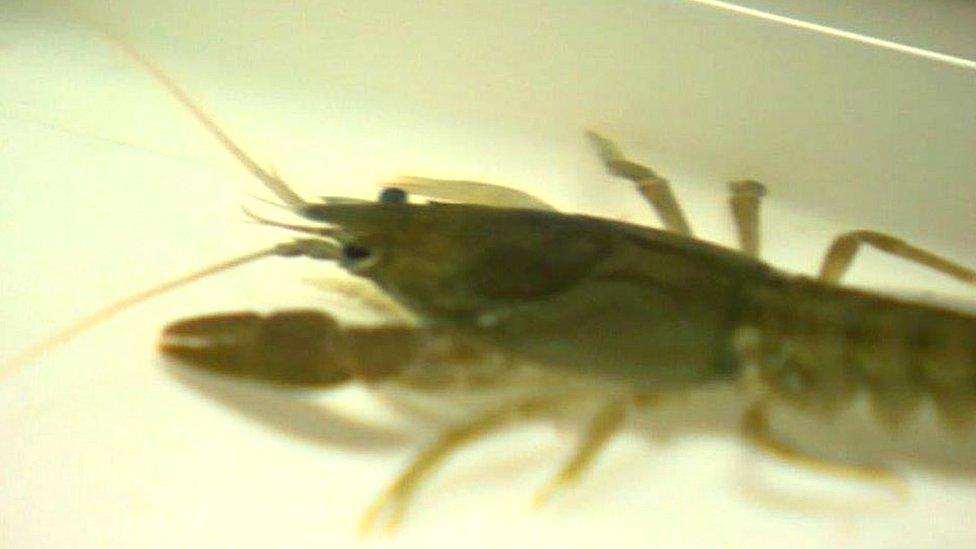
The UK is home to a quarter of the world's population of white-clawed crayfish
PhD student Rhidian Thomas is set to present his research on the invasive signal crayfish at an International Crayfish Symposium in Madrid this month.
"It is quite a grave situation - the non-native species are continuing to spread and bringing crayfish plague with them," he said.
"The main focus of the research here at Cardiff Research into Infection and Parasites in Ecological Systems (Cripes) is to try and understand which factors are associated with their success.
"We also want to understand more about the parasites and pathogens that get co-introduced with them when they're brought over.
"It's to try and understand what sorts of management practices we can put in place."
One method that is increasingly being encouraged is for people who use waterways - such as canoeists and fishermen - to check, clean and dry their equipment after use to try and prevent the spread of crayfish plague from area to area.
The NRW said getting the message across was "vital" as a wet wader or the underside of a boat that had been in contact with one affected river could cause the death of native crayfish in another.
- Published25 May 2016
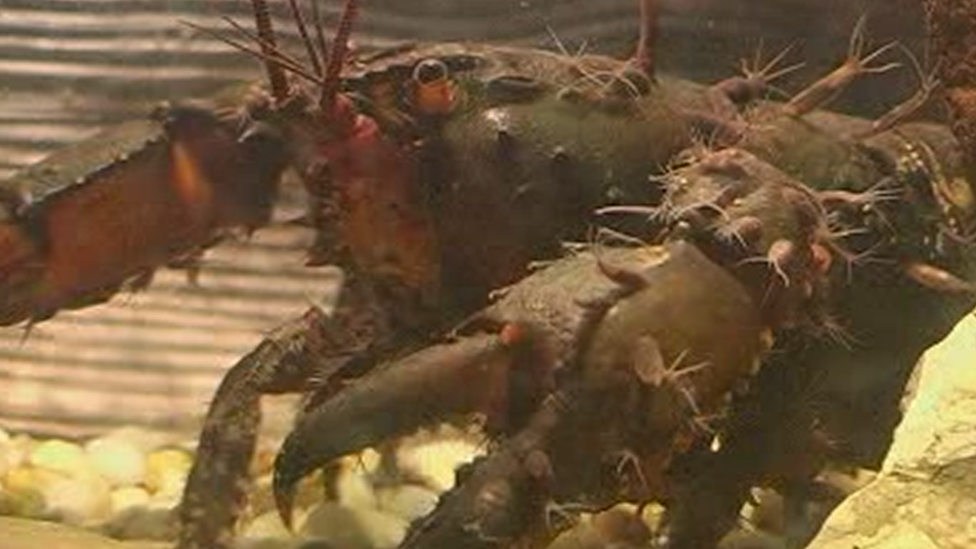
- Published25 May 2016
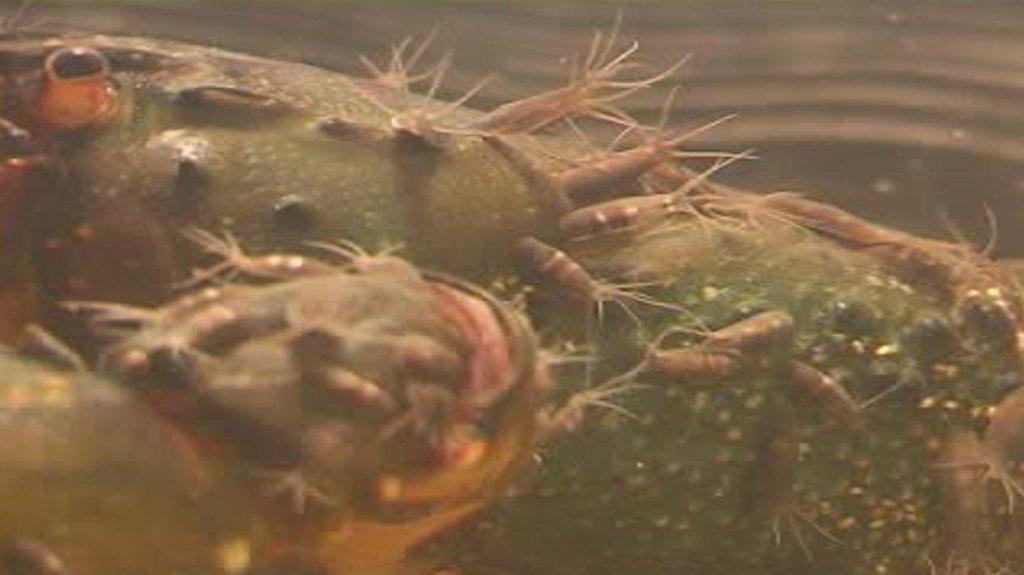
- Published9 May 2015
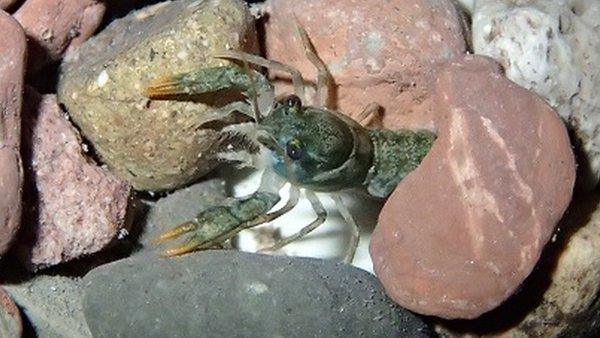
- Published5 April 2015
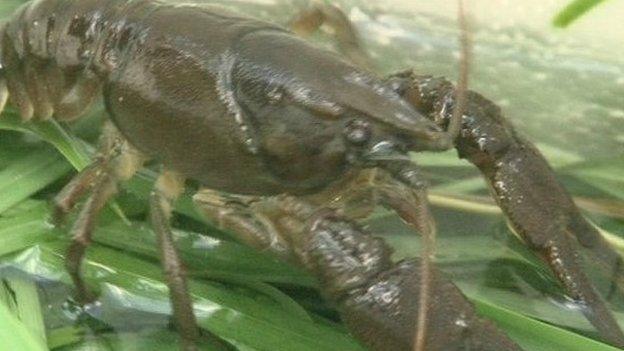
- Published16 August 2015
